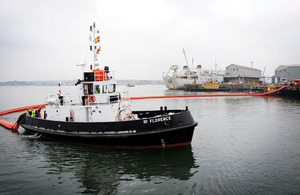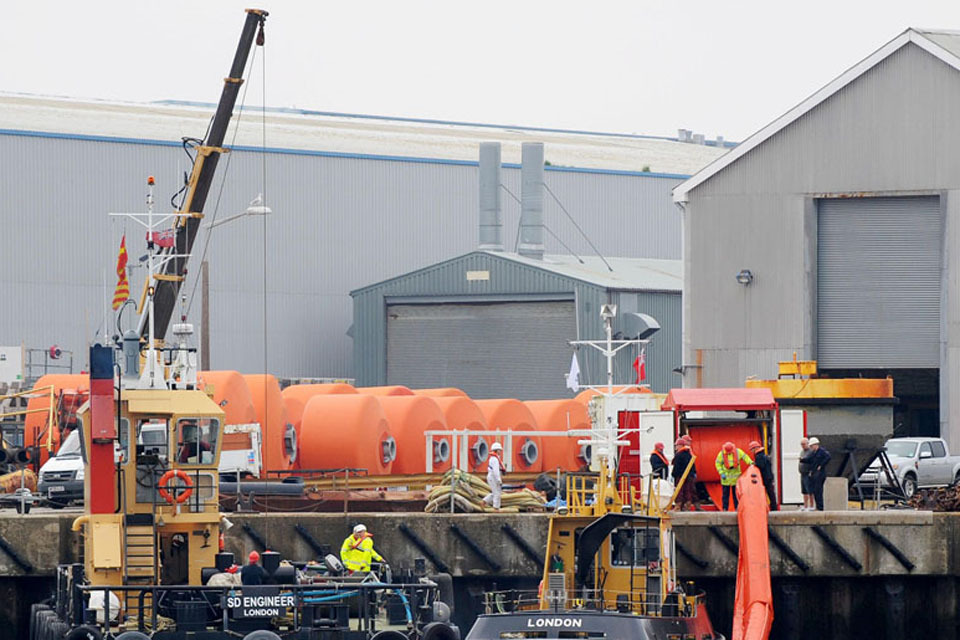MOD fuel depot emergency exercise declared success
The River Tamar in Cornwall was busier than normal recently, with tugs, barges and other vessels simulating an oil spill from a fuel depot.

A boom is deployed, simulating the prevention of oil leaking into Plymouth Sound [Picture: Leading Airman (Photographer) Vicki Benwell, Crown Copyright/MOD 2012]
The activity was all part of the MOD-led exercise to rehearse its emergency plans in the event of a spill from the Thanckes oil depot at Torpoint opposite HM Naval Base Devonport.
The exercise scenario involves a simulated fuel release from a split hose at the depot (run by the Oil and Pipelines Agency) that refuels Royal Navy, Royal Fleet Auxiliary and other vessels.
Local residents saw an increase in traffic on land and water from the emergency services and the Royal Navy and MOD enacting the scenario.
The diesel fuel oil was initially contained with inflatable booms as it was driven up river by wind and tide towards the River Lynher, but was prevented from spreading into the Lynher.
The thin film of surface oil was then dispersed within the boomed area by the movement of tugs and removed through a combination of a suction machine and soaking floats.
Commander Carl Necker, Royal Navy headed the exercise as the Queen’s Harbour Master with responsibility for ensuring the free and safe operation of military traffic in the Port of Plymouth.

The exercise scenario involved a simulated fuel release at the depot which refuels the Royal Navy and Royal Fleet Auxiliary vessels [Picture: Leading Airman (Photographer) Vicki Benwell, Crown Copyright/MOD 2012]
He said:
This was a good opportunity to exercise our contingency plans for fuel spills with all relevant agencies.
This worked successfully and we were able to stand up the command and control centre within Devonport Naval Base from which to direct the exercise.
The second aim was to deploy effectively the containment and clean-up measures.
Having achieved this we will now provide the feedback to outside independent consultants who will provide us with a report which we will analyse and we can see how to integrate improvements into our future contingency plans.
He said the MOD have well-rehearsed accident procedures and the exercise was to satisfy safety regulators who inspected the reaction.
The exercise is run by the MOD, Royal Navy, Oil Pipelines Agency and their partners, including Cornwall County Council, Plymouth City Council and emergency services.